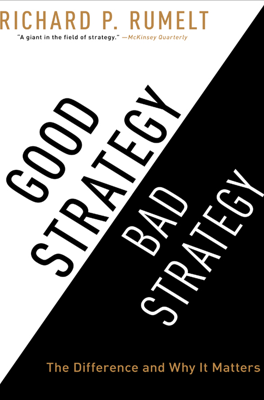Why So Much Bad Strategy?
Pervasive Presence of Bad Strategy
Bad strategy is surprisingly common despite the widespread acknowledgment of strategy's importance. This prevalence isn't due to miscalculation; rather, it's the result of avoiding the demanding effort needed to craft a good strategy. Leaders often retreat from making tough choices due to the discomfort or difficulty that these decisions entail.
Key Pathways to Bad Strategy
Avoidance of Tough Choices: Strategy inherently involves selecting specific paths and excluding others. When leaders dodge these tough decisions to avoid conflict within organizations, the result is often a weak, non-specific strategy. For example, at Digital Equipment Corporation (DEC), inability to choose a clear strategic direction led to its downfall.
Template-Style Strategy: Many organizations subscribe to a generic template approach, filling out predetermined sections such as vision, mission, values, and strategies. This method overlooks the unique challenges and opportunities specific to the organization, often yielding a strategy that lacks substance and actionable steps.
'New Thought' Strategy: Some leaders rely heavily on positive thinking or the belief that a strong mental attitude alone can manifest success. This approach neglects the practical steps needed to navigate complex challenges and instead promotes an unrealistic reliance on optimism to achieve strategic goals.
Why Bad Strategies Persist
- Fear of Conflict and Loss: Making strategic choices often means prioritizing certain areas over others, which can lead to internal friction and perceived losses. The reluctance to create such discord can lead to inert strategies that fail to address core organizational challenges.
- Organizational and Cultural Inertia: Once certain practices are deeply embedded within an organization, changing them becomes increasingly difficult. Often, the political and social costs of significant strategic shifts deter action until crises force change.
- Misconceptions and Poor Leadership: Misunderstanding the nature of effective strategy, many leaders equate consensus with success. Lack of differentiation in strategies and not tackling the real issues foster persistent strategic inadequacies.
Decisive Factors in Effective Strategy
Truly effective strategies demand deep insight, the willingness to make hard decisions, and the dedication to see them through despite potential opposition or discomfort. The necessary first step is always a clear and honest assessment of current realities and the options available. This involves rejecting the comfort of non-specific, universally agreeable goals for the rigors of targeted, practical, and sometimes contentious strategic paths.
